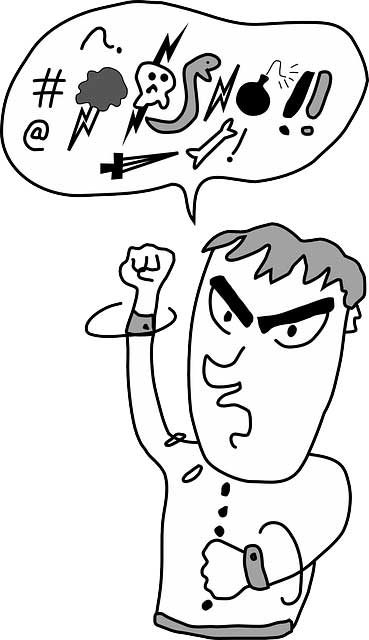7 Reasons Not to Swear Online


Photo from Pixabay.com CC0
Call me an old stick-in-the-mud, but there is one rule I swear by: I don't use expletives online. There was a time when I shouldn't have thought anyone would need to discuss such a thing. Unfortunately, however, it seems to me that there is an increasing trend of using the 'f' word almost as a matter of course.
For example, I read a post on Medium recently in which the author inserted a few swear words for no apparent reason. A few months ago I abandoned an article even before I'd finished it because there were several swear words in just about every sentence!
I don't know if this sort of thing is meant to convey that the writer is "edgy", but what it conveys to me is that they have poor judgement, an inadequate grasp of the English or American language and are unprofessional.
Don't get me wrong: I'm no saint. On the extremely rare occasions I have a go at building something then you can be sure the air will turn blue when I hit my thumb instead of the nail. Same thing happens when my computer crashes and I lose the last hour's work because I forgot to save.
But I don't do it online.
Here are my reasons for taking this position.
It shows poor judgement
If you're with a group of friends and part of your repartee is swearing, well fine (I suppose): you know them, they know you, and it doesn't seem out of place. Online, though, you have no idea who is dropping in to read your writings: your employer, perhaps? A parent? A student? A potential future employer?
Tools and ideas to transform education. Sign up below.
In fact, when you think about it, swearing online is a stupid as standing in your local shopping mall and spouting forth. Poor judgement indeed.
It indicates that you're inarticulate
There are plenty of ways to indicate annoyance or edginess without resorting to swearing. If you can't think of any, grab hold of a thesaurus. Personally, when I wish to do so, I just use the expression "Blast!". It's the English equivalent of "dang!", and offends nobody. At a pinch, use Mad Magazine;s approach and use "@*#?!!" – although I tend to agree with the person who commented in a discussion forum that even implied swearing has no place in a professional space. That leads me on to...
It's unprofessional
What do I mean by that? Simply that if you want to be taken seriously, then act in a way that makes that easy for others to do. If I were to have a meeting with a Principal, and as soon as we'd sat down she started speaking with a liberal dose of swear words, for no apparent reason, I'd think she had either taken leave of her senses or simply didn't know how she was expected to behave.
It's insulting
Sometimes when we have people around to fix our plumbing or electrics, the worker involved starts ranting on about illegal immigrants, teachers, Christian Scientists, [insert target group here], and I find that insulting. Why? Because they have made an implicit assumption that talking insultingly about a third party is somehow OK with me. I feel the same way about people swearing when they talk to me. I don't do it when I'm talking to them, so why do they think it's OK to swear when they're talking to me.
It's deeply unpleasant
Personally, I find swearing horrible, and when a swear word leaps out at me from nowhere for no apparent reason in the middle of a blog post, or a comment in a forum, I find it a bit of a shock. Unfortunately for the perpetrator, it's a shock for all the wrong reasons.
It makes you unable to be recommended
Even if you think swearing online is OK, you make it impossible for other people to recommend you. Recommending someone is, in effect, a seal of approval, so by extension, recommending someone who swears online is implicitly approving of that behaviour. In fact, I am so concerned about that kind of implication that if someone swears in response to a comment in Twitter or Facebook, say, I immediately unfollow or unfriend them.
It sets a poor example to students
Students always look up their teachers online. Have al alternative and secret identity is of limited use too: either they will discover it, or you will inadvertently give the game away. In some research I did a couple of years ago, I discovered that adults' online behaviour is far worse than kids'. If you behave badly or inappropriately online, then you lose the vital authority required to tell students not to do so.
Conclusion
One reason for swearing online is that, in theory, it can be humorous. I've only ever seen three examples of swearing in print or online that was genuinely funny. All of the rest looks like people trying far too hard, and generally reducing their mentality to that of the average 10 year old boy trying to look big in front of his pals.
That's kind of forgivable in a ten year old, I guess. In adults it just comes across as pathetic.
About Terry Freedman
Terry Freedman is an independent educational ICT and Computing consultant in England. He publishes the ICT & Computing in Education website and the Digital Education newsletter at www.ictineducation.org.
